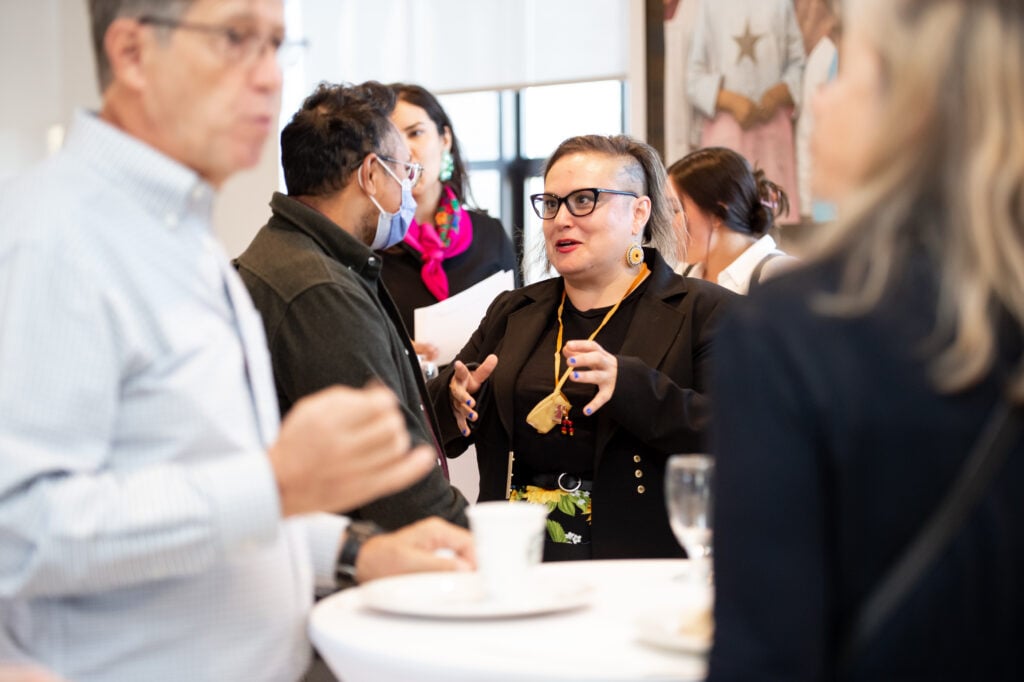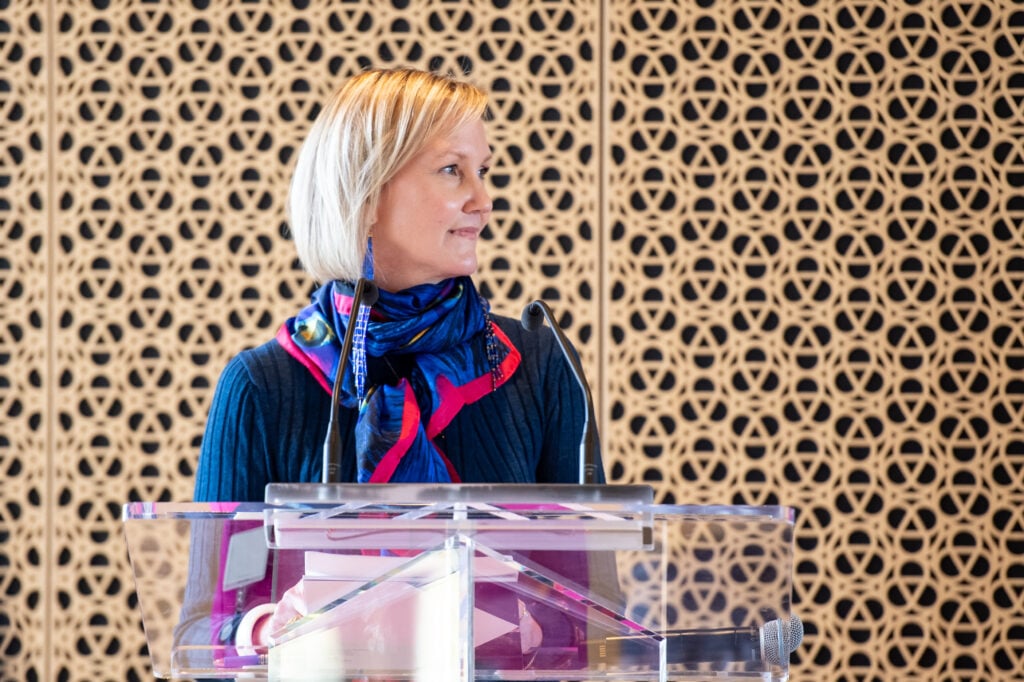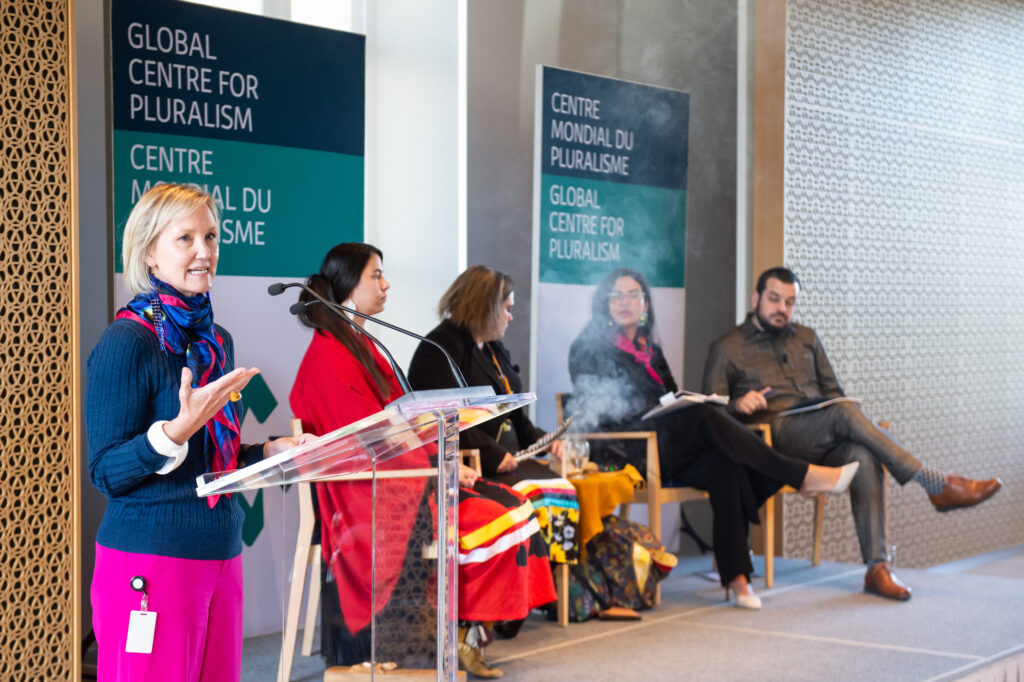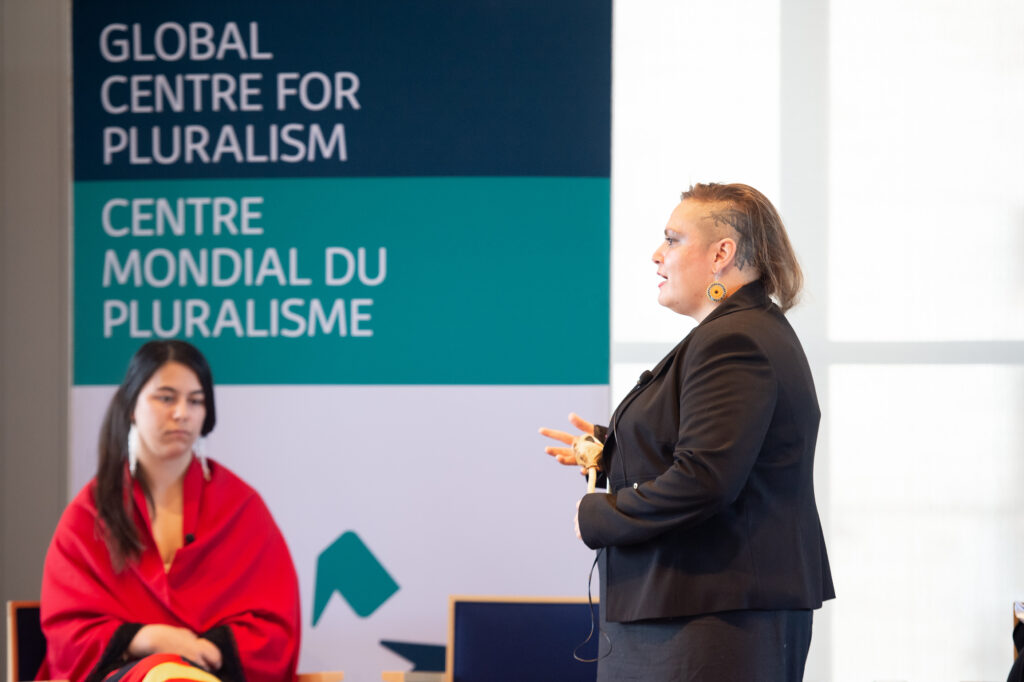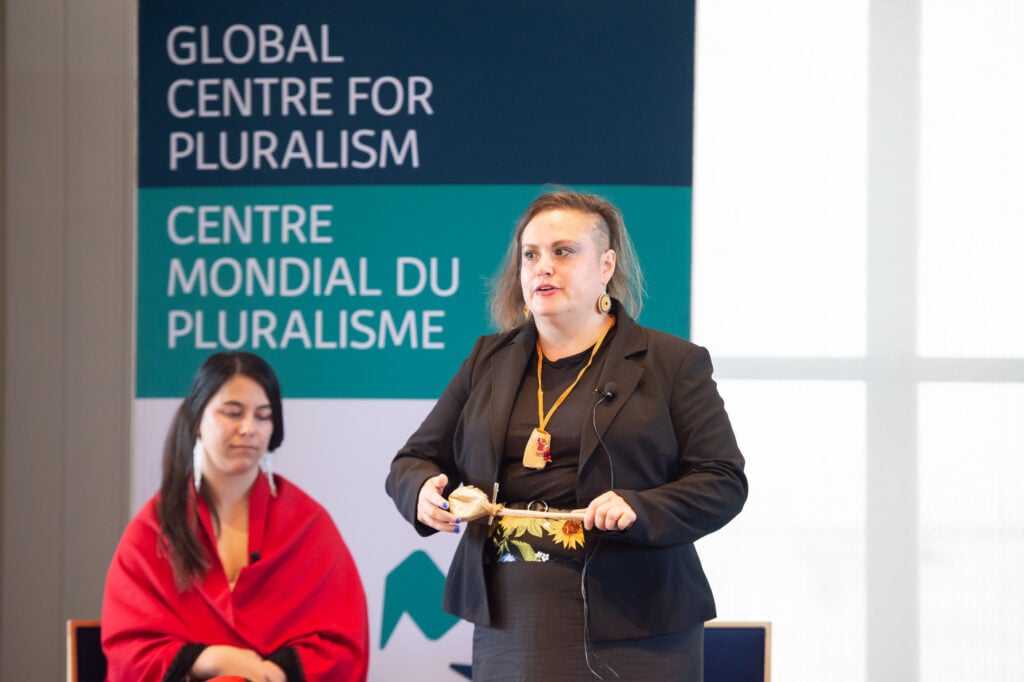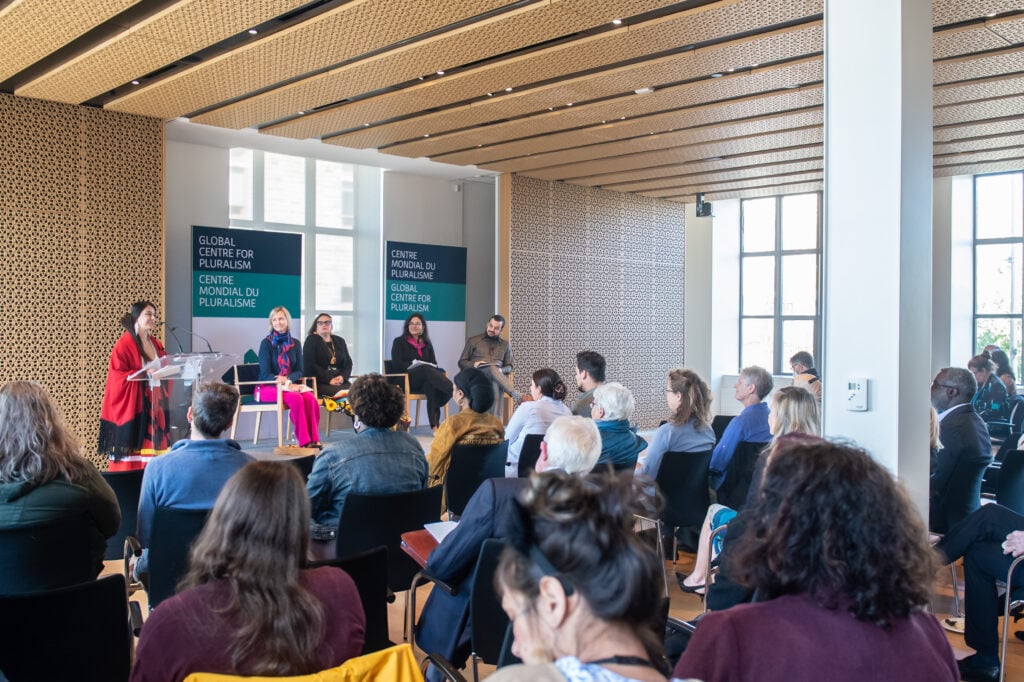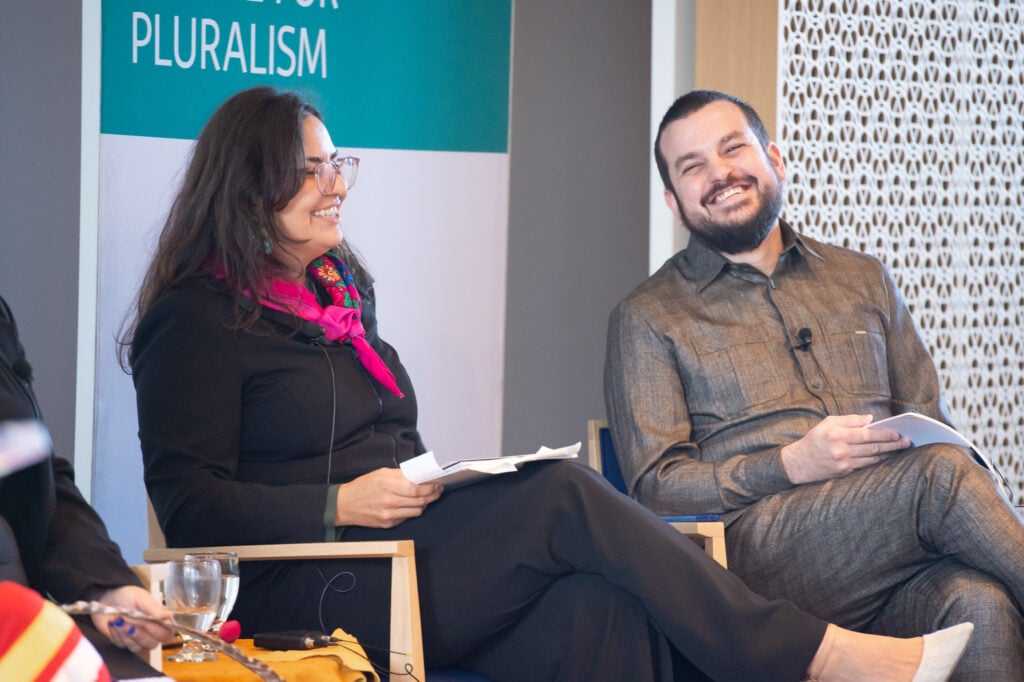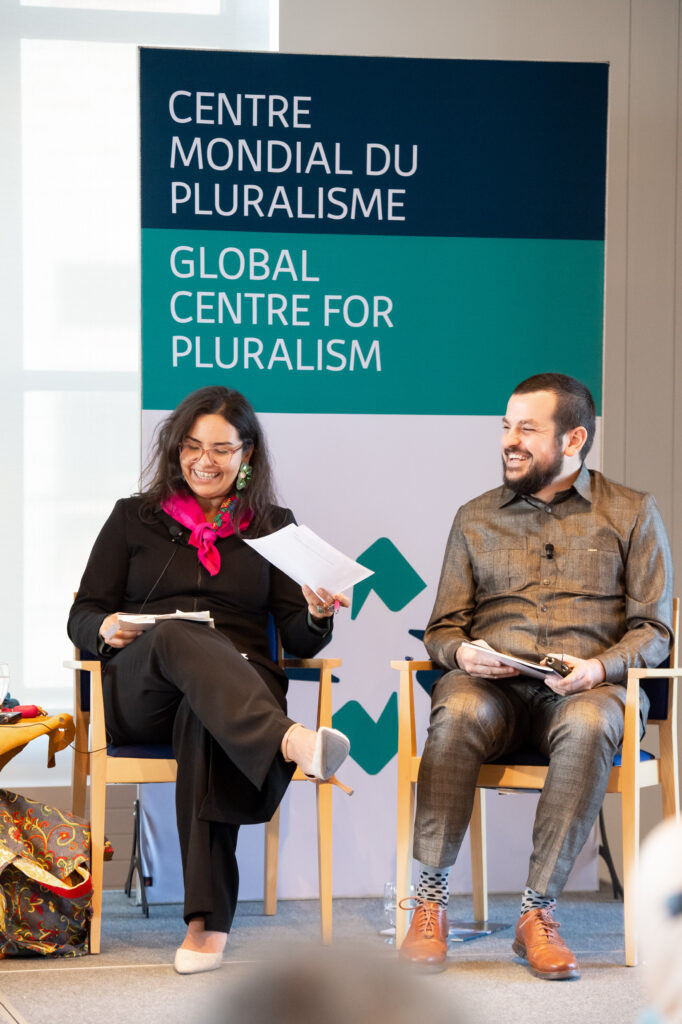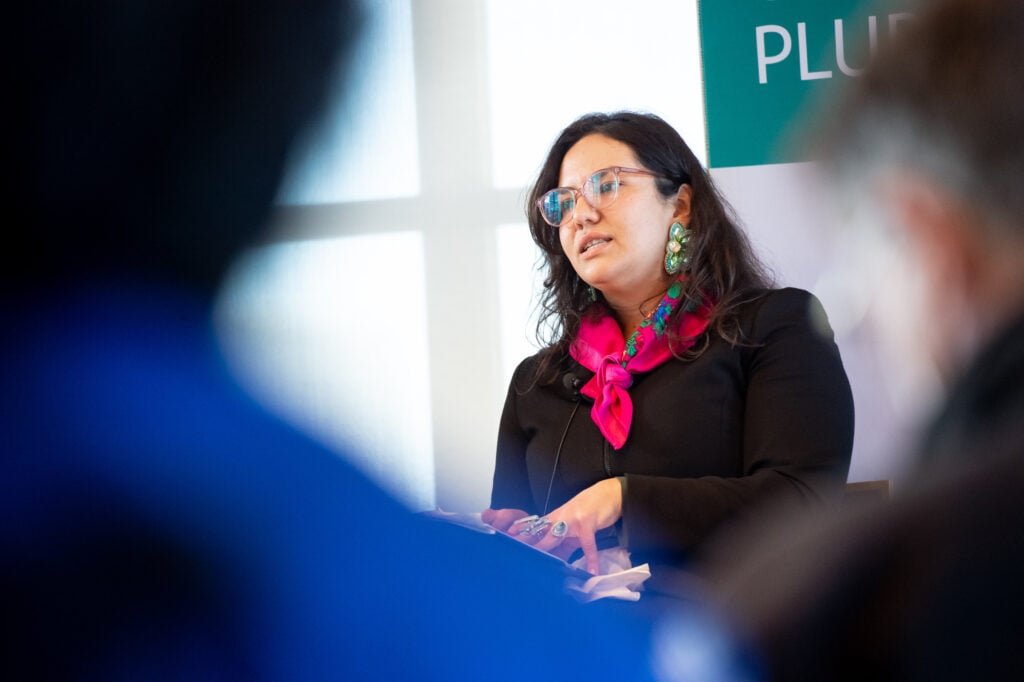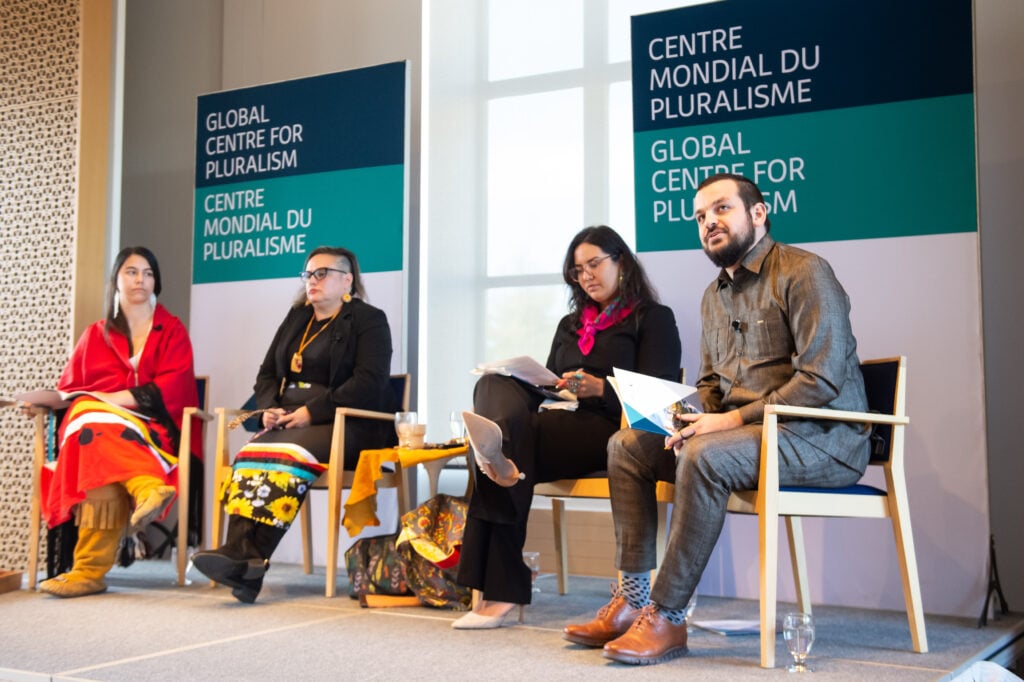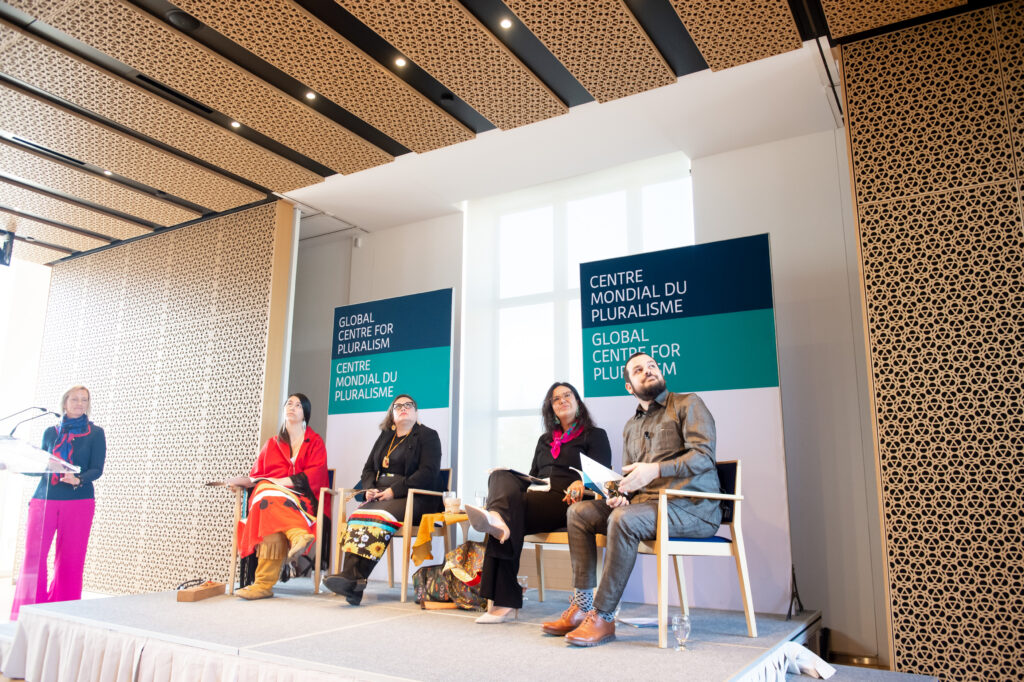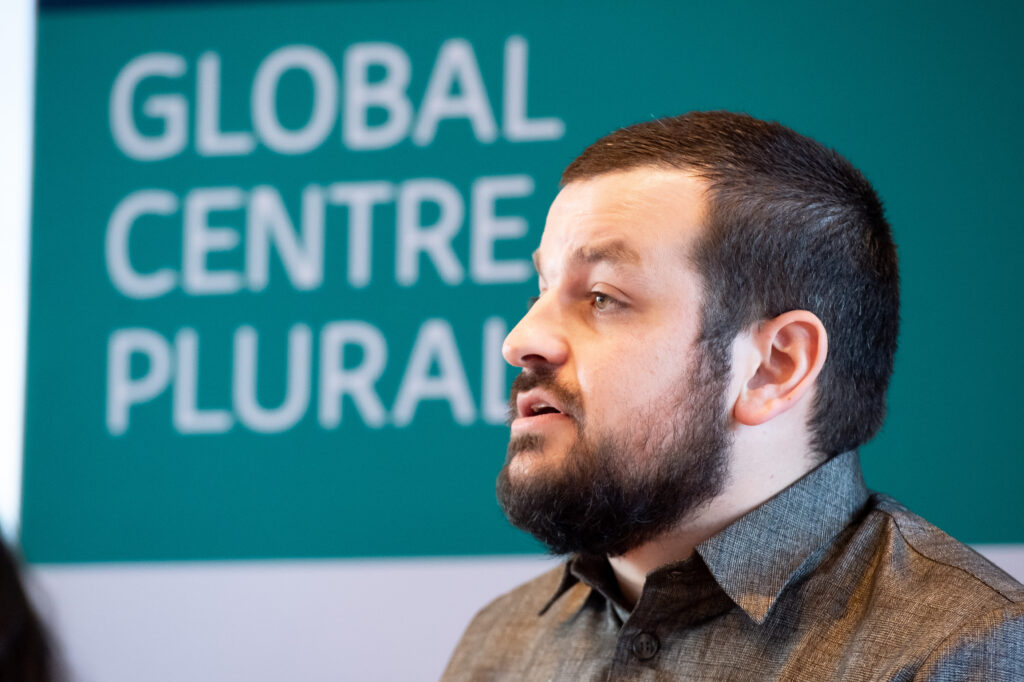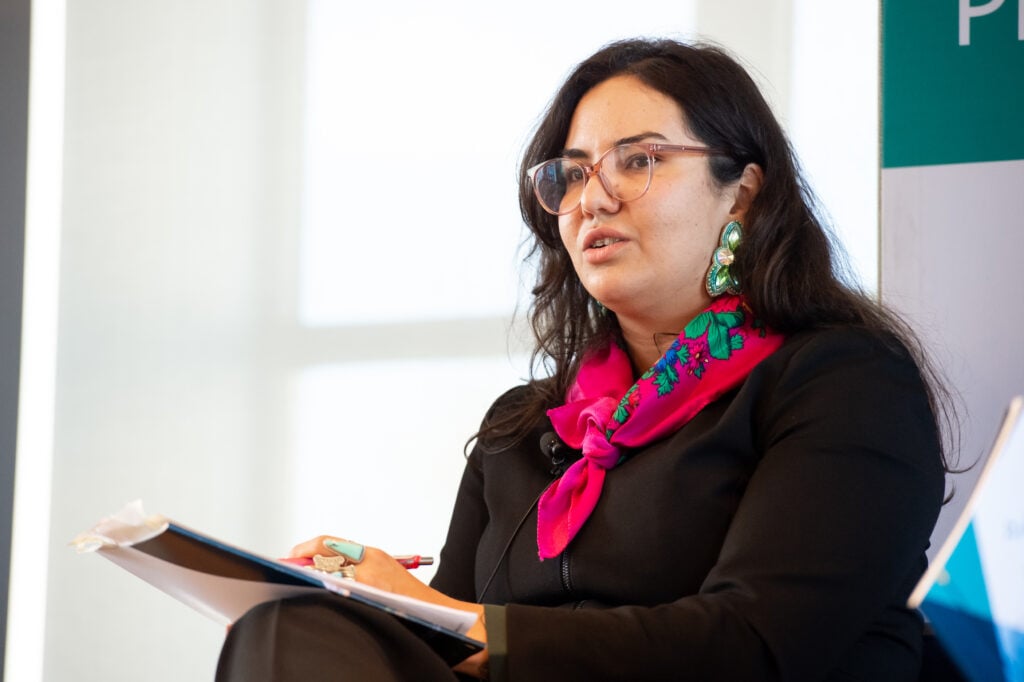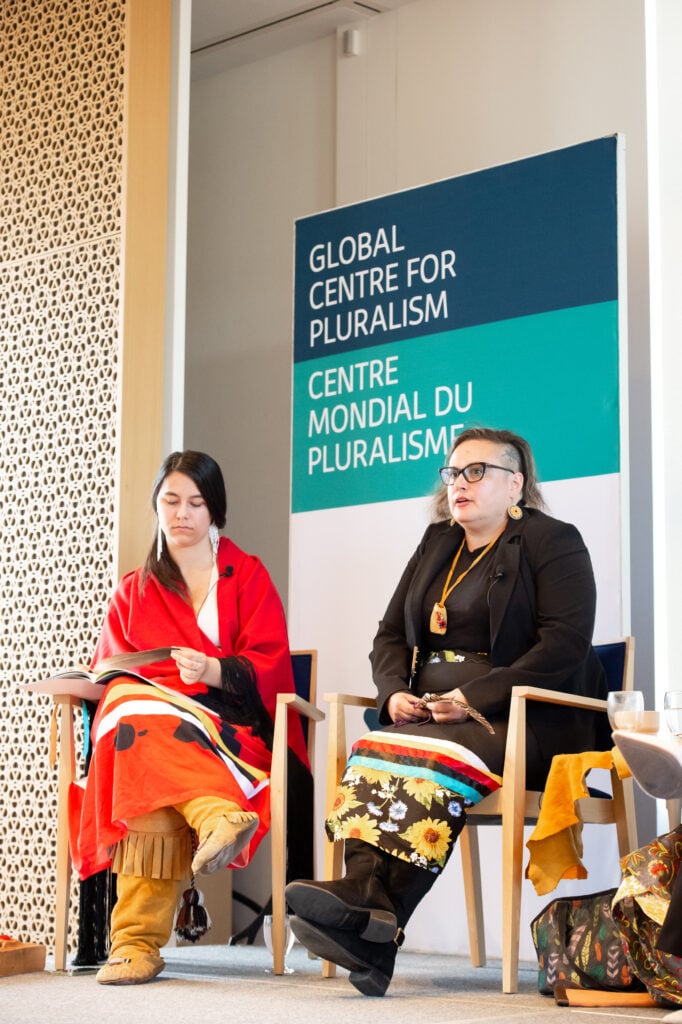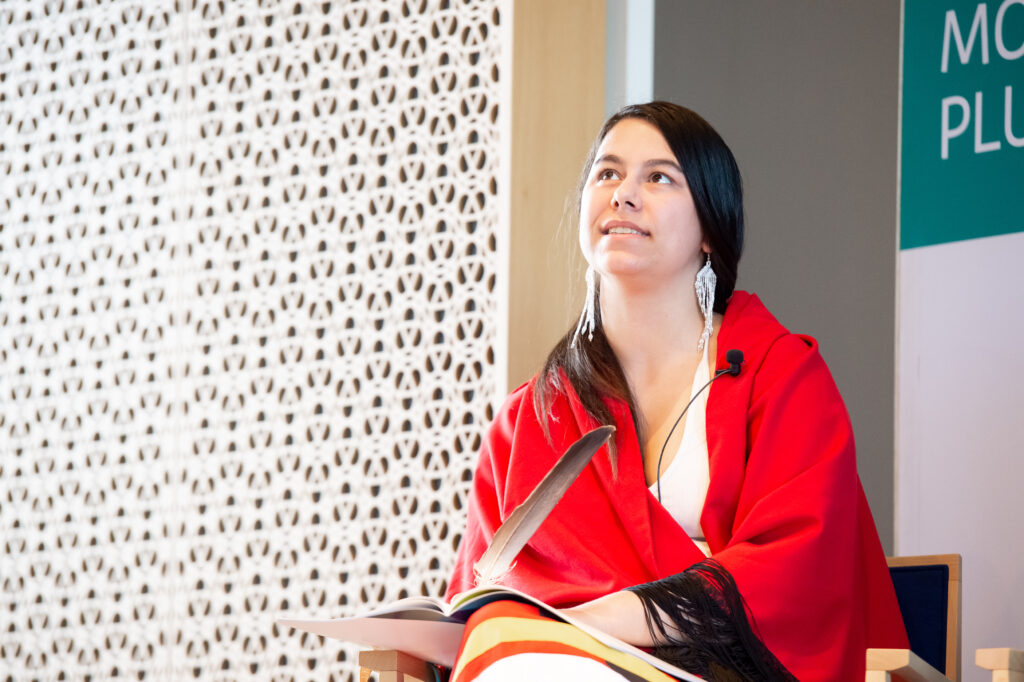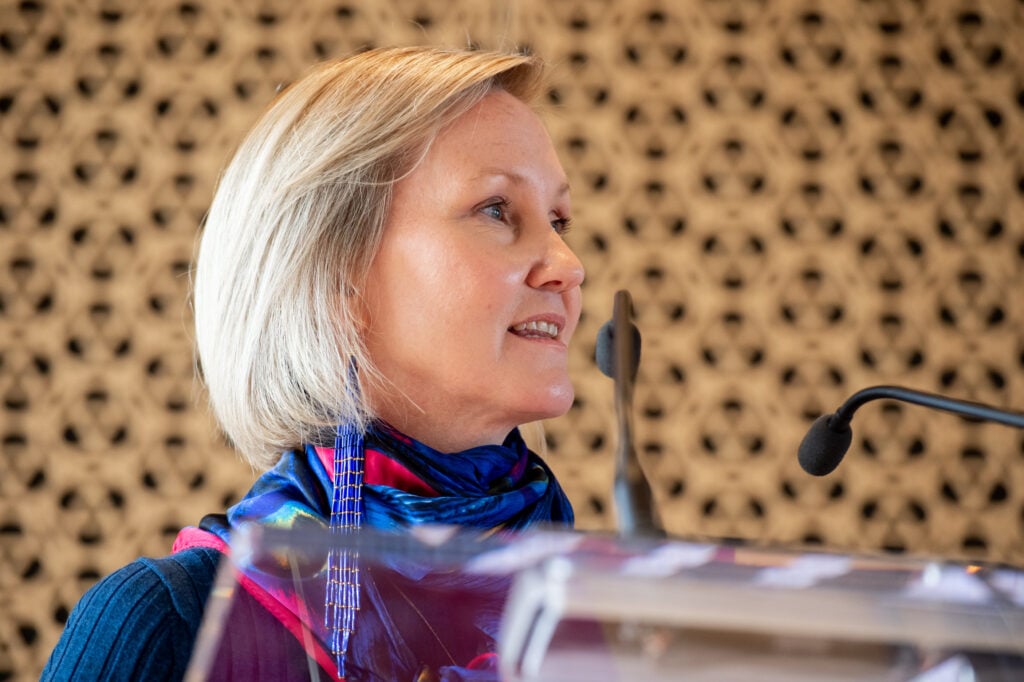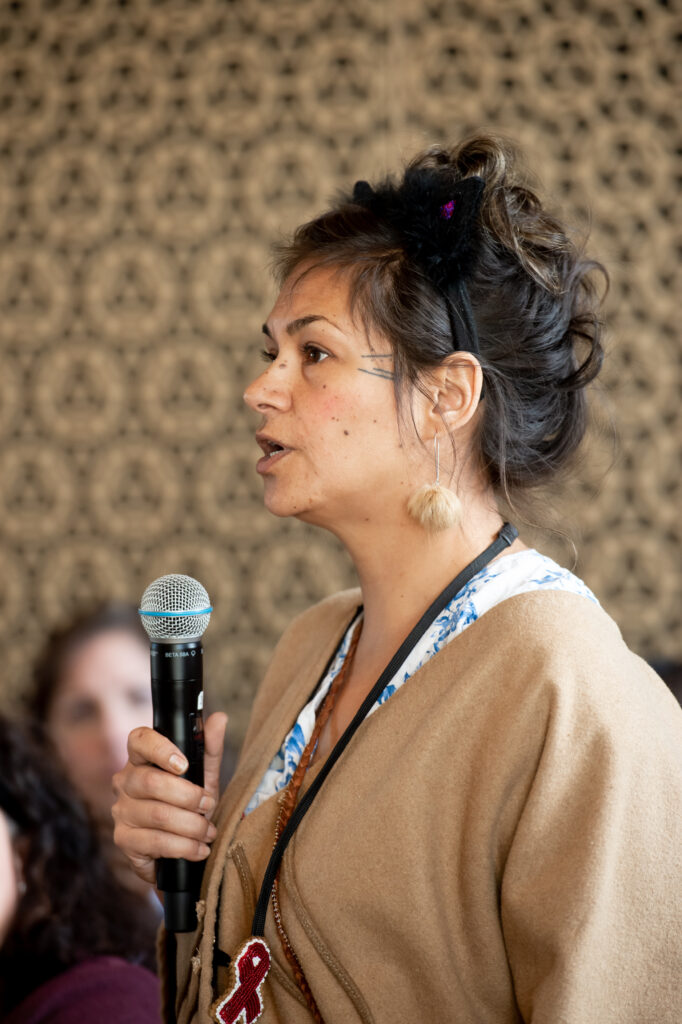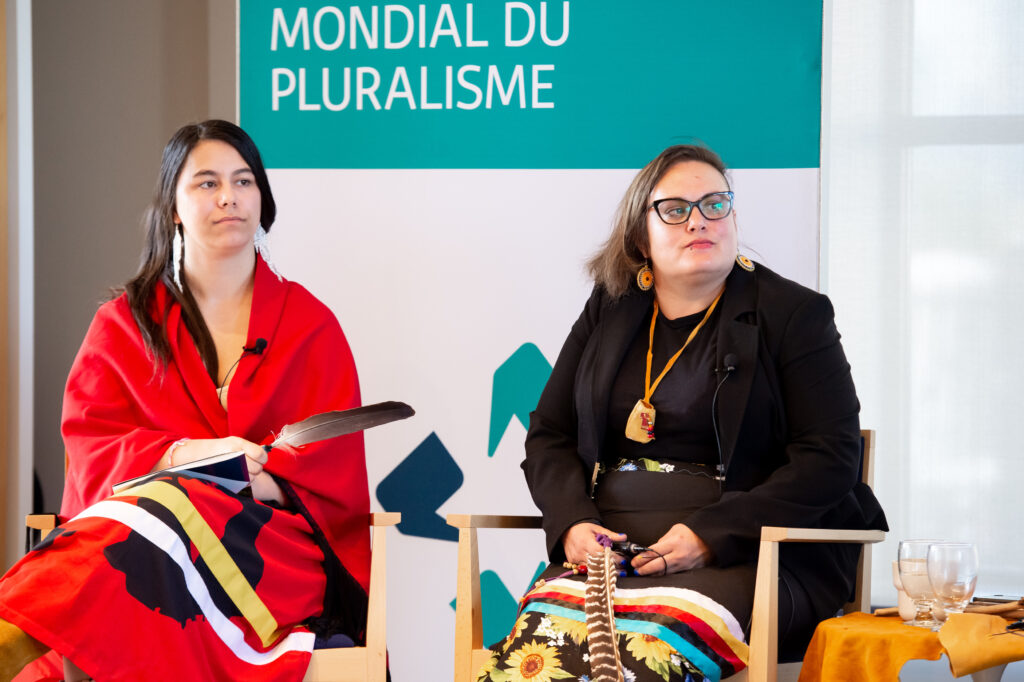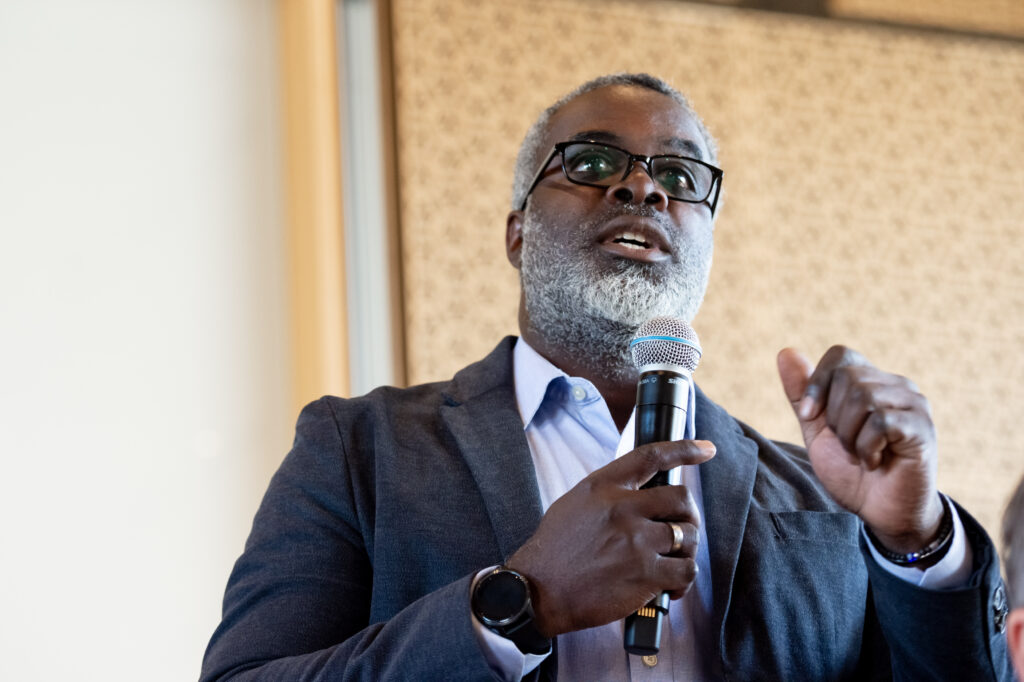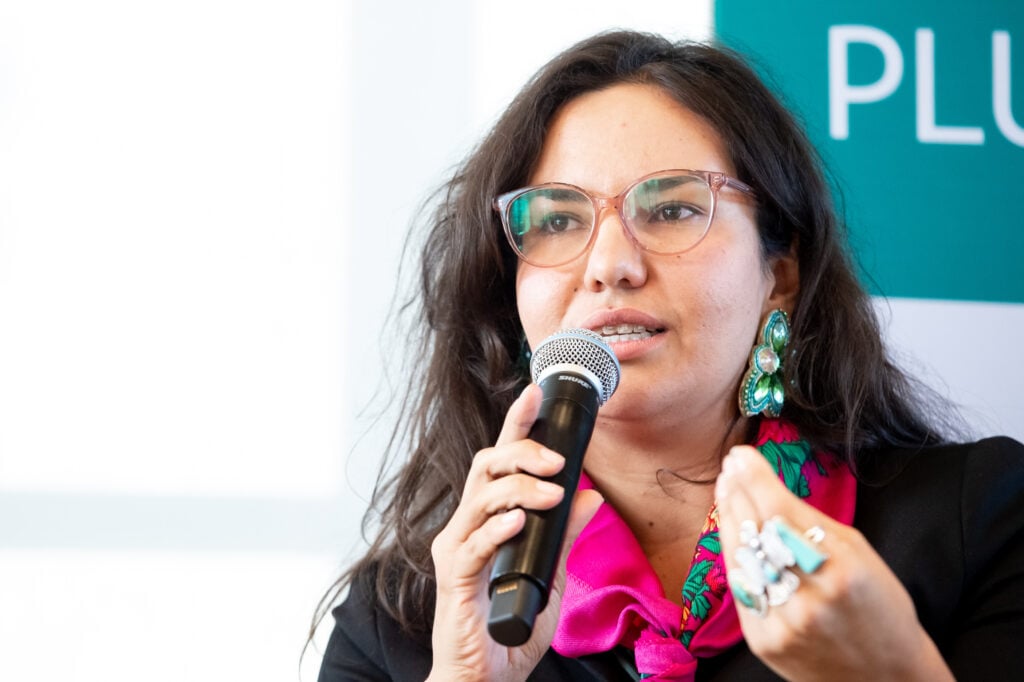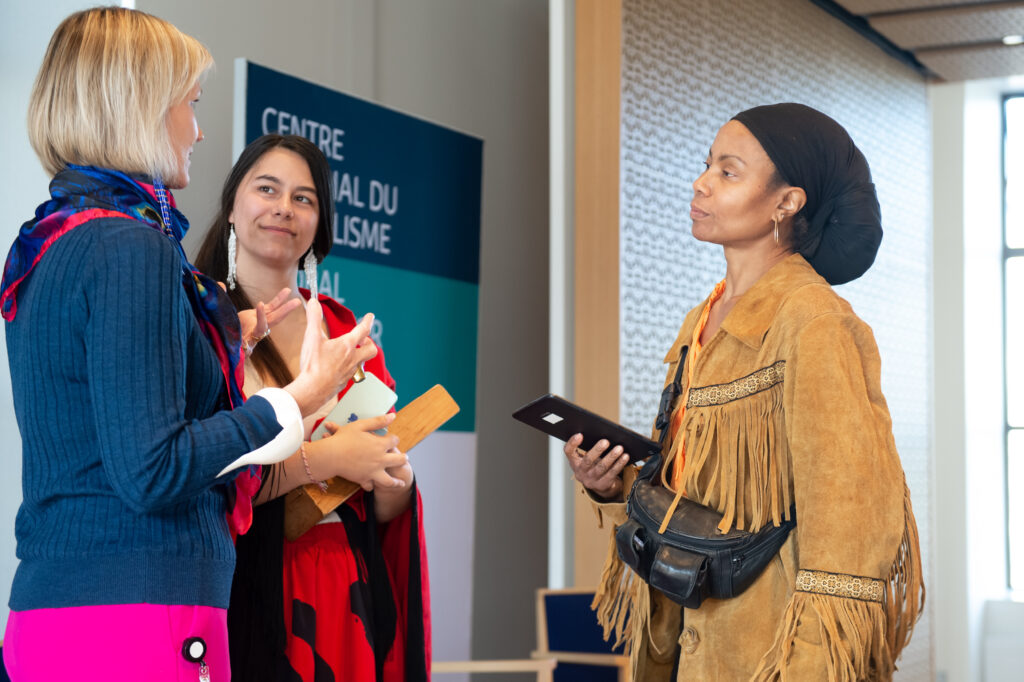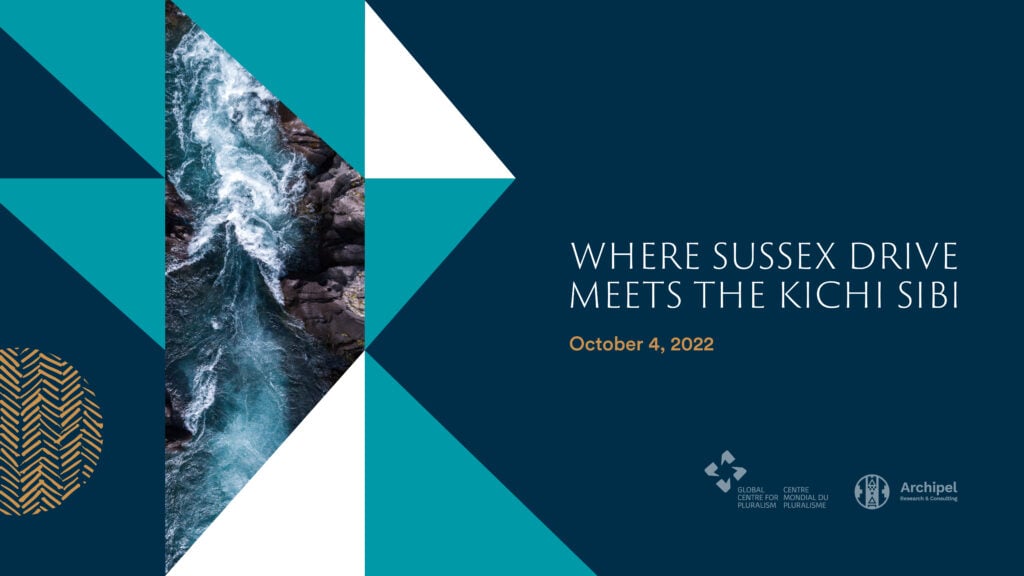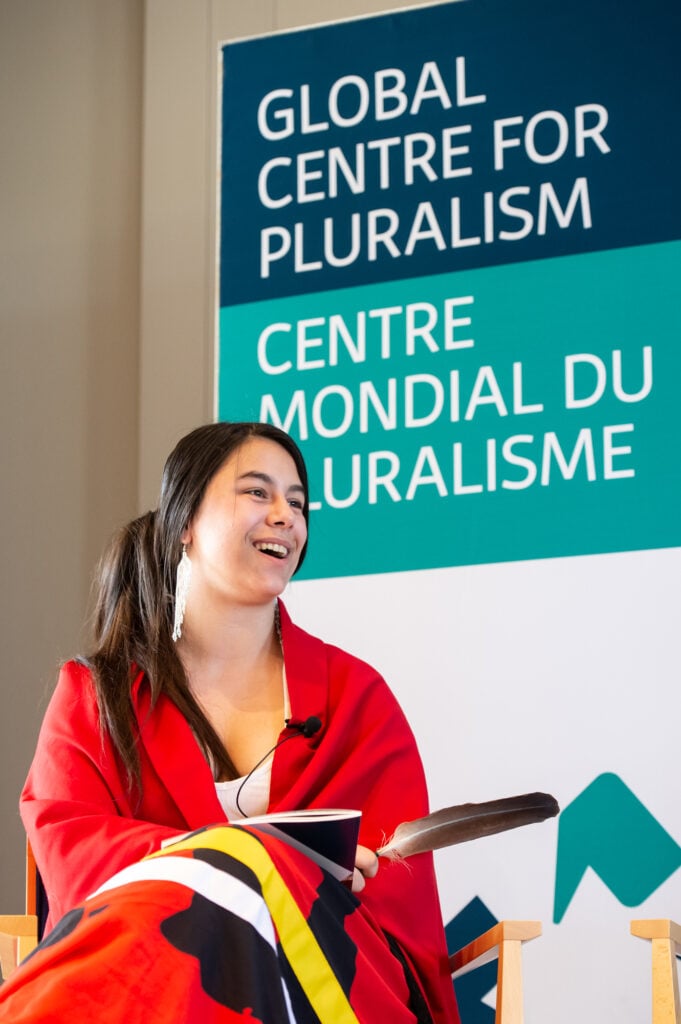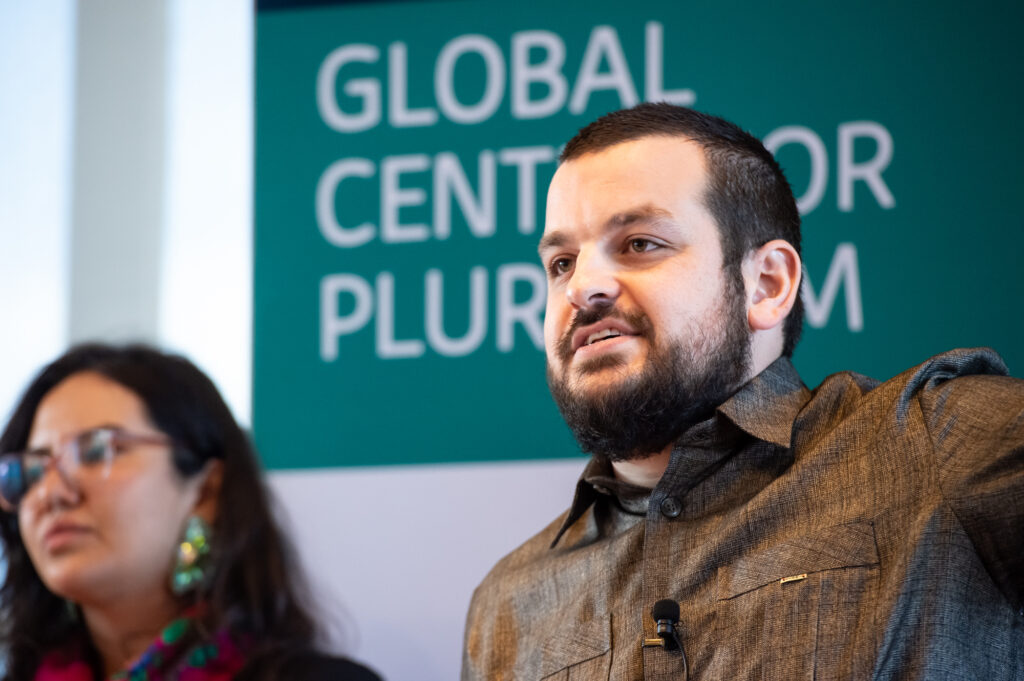A public forum addressing ties to Algonquin and colonial histories at 330 Sussex
As Canadians everywhere are reckoning with the atrocities this nation has committed against First Nations, Inuit and Métis people, the Global Centre for Pluralism has chosen to dig where we stand. The Centre commissioned historical research, from an Indigenous perspective, on the river and lands surrounding our 1906 Ottawa headquarters. The report, Where Sussex Meets the Kichi Sibi : History and Pluralism at 330 Sussex, seeks to understand the colonial legacies — however painful — tied to this location.
On October 4th 2022, the Global Centre for Pluralism co-hosted a public forum to share key findings from the report and the difficult issues it raises. In partnership with the report’s authors from Archipel Research & Consulting, an Indigenous-owned and women-led firm, panellists Kyrstin Dumont, Jennifer Ferrante, Sabre Pictou Lee and William Felepchuk discussed how this report can be a starting point for deeper understanding of the history of dispossession and the colonial processes in the national capital region. Moderated by Secretary General Meredith Preston McGhie, panellists also spoke about how this report can support meaningful reconciliation with the Algonquin Anishinabeg Nation.
It was an honour to have Jennifer Ferrante, Algonquin from Pikwakanagan, share a water song with us as the rivers near Ottawa (Ottawa River, Rideau River, and Gatineau River) were a large part of the nation-making process and should be a part of reconciliation efforts in Ottawa. Kyrstin Dumont joined us on behalf of her grandfather, Albert Dumont, an elder from the Kitigan Zibi First Nation who also wrote the poem, “City of Ottawa” which is featured in the report. Kyrstin honoured us with a reading of this poem with her opening remarks and stated:
“As we reflect on that poem, that song, and the many words you will hear today, I want you to think about your own responsibility as settlers within a restructured society that we can build together. I want you to think about and reflect how we can become a united front and rebuild that broken bridge.”
Sabre Pictou Lee and William Felepchuk from Archipel Research and Consulting highlighted findings from the report. Overall, Where Sussex Meets the Kichi Sibi shares that Canada’s nation-making process is also a process of dehumanisation of Algonquin people and the theft of natural resources from their lands and territories for the various industries that founded this city.
One particularly profound finding shared is that the mortar used to bind the bricks of the Parliament Buildings contains sand taken from one of the four confirmed Algonquin burial sites in the area. The use of these quarries means that the remains of Algonquin ancestors may be in the mortar of the Parliament Buildings. As a nearby site built in the same time period and style with similarly sourced materials, it is very possible that the Global Centre for Pluralism’s headquarters also contains Algonquin remains.
You can watch Sabre Pictou Lee and Global Centre for Pluralism’s Secretary General Meredith Preston McGhie speak on the report and its key finding in the video below.
This finding, though a “gut-punch”, is incredibly important as it gives further permanence to this knowledge that has been passed generation to generation and nation-to-nation as oral history across Canada. Sabre mentions that now that it is published, all who have read or heard this knowledge have a responsibility to share and hold space for it. As Sabre stated,
“Once that it’s been voiced, you can’t un-hear it. We have a responsibility to the stories we hear… It’s our duty to raise awareness and reckon with that.”
The proceeding dialogue with panellists and attendees brought along a fruitful conversation about what it means to reckon with the colonial processes that led to the dehumanisation of the Algonquin Nation and theft of their natural resources. Kyrstin Dumont challenges us all to think about and embrace the responsibility of what it means to be on Indigenous land and to lean into that discomfort. In that discomfort is a chance to create a society that can be revolutionised with love and respect because acknowledging this history is the first step to restructuring and rebuilding a society that is inclusive to all.
Listen to Meredith Preston McGhie and Sabre Lee Pictou talk about the report on CBC Ottawa Morning here
Read the full report here
Panellists:
Sabre Pictou Lee
CEO and Co-founder, Archipel Research and Consulting; Mi’kmaq from Eel River Bar First Nation in northern New Brunswick. Sabre is an experienced Indigenous liaison and researcher.
William Felepchuk
Senior Research Advisor, Archipel Research and Consulting; A settler historian Indigenous studies scholar, researcher, geographer, and social scientist based in Ottawa.
Jennifer Ferrante
Algonquin from Pikwakanagan; an experienced Indigenous liaison with over 15 years’ experience working with Indigenous people, communities and organizations in the Ottawa area
Kyrstin Dumont
Algonquin from Kitigan Zibi; an advocate, educator, mentor and facilitator of discussions about her experience as an Algonquin youth in an urban setting


